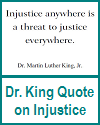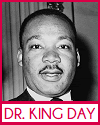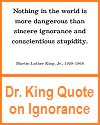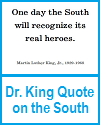Dr. Martin Luther King Jr., born on January 15, 1929, in Atlanta, Georgia, was a pivotal leader in the American civil rights movement. His profound impact on the fight for racial equality and social justice continues to resonate worldwide.
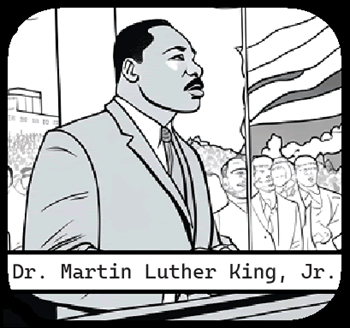 King's early life was steeped in the traditions of the African American Baptist church, with his father, Reverend Martin Luther King Sr., serving as a significant influence. King excelled academically, earning a sociology degree from Morehouse College in 1948, a Bachelor of Divinity from Crozer Theological Seminary in 1951, and a Ph.D. in Systematic Theology from Boston University in 1955.
King's early life was steeped in the traditions of the African American Baptist church, with his father, Reverend Martin Luther King Sr., serving as a significant influence. King excelled academically, earning a sociology degree from Morehouse College in 1948, a Bachelor of Divinity from Crozer Theological Seminary in 1951, and a Ph.D. in Systematic Theology from Boston University in 1955.
King's leadership in the civil rights movement began in earnest with the Montgomery Bus Boycott of 1955-1956. Sparked by Rosa Parks' arrest for refusing to give up her seat to a white person, the boycott was a pivotal moment in the struggle against segregation. King's eloquence and steadfast commitment to nonviolent protest galvanized the movement and led to the desegregation of Montgomery buses.
In 1957, King co-founded the Southern Christian Leadership Conference (SCLC), an organization dedicated to achieving civil rights through nonviolent means. As president of the SCLC, King spearheaded numerous campaigns to combat racial injustice. One of his most significant efforts was the Birmingham Campaign in 1963, where he was arrested and penned the seminal "Letter from Birmingham Jail," articulating the moral imperative for civil rights activism.
Later that year, King delivered his iconic "I Have a Dream" speech during the March on Washington for Jobs and Freedom. His powerful vision of racial harmony and equality inspired millions and remains a defining moment in American history. In 1964, his efforts were recognized globally when he was awarded the Nobel Peace Prize.
King's activism extended beyond racial issues; he also addressed economic inequality and opposed the Vietnam War. His Poor People's Campaign sought to address systemic poverty and economic disparities, emphasizing the need for comprehensive social and economic reform.
Tragically, King's life was cut short when he was assassinated on April 4, 1968, in Memphis, Tennessee. His death was a devastating blow to the civil rights movement, but his legacy endures. King is celebrated as a symbol of peace, justice, and the ongoing struggle for equality. His work laid the groundwork for future civil rights advancements and continues to inspire movements for social justice around the world.
|
 King's early life was steeped in the traditions of the African American Baptist church, with his father, Reverend Martin Luther King Sr., serving as a significant influence. King excelled academically, earning a sociology degree from Morehouse College in 1948, a Bachelor of Divinity from Crozer Theological Seminary in 1951, and a Ph.D. in Systematic Theology from Boston University in 1955.
King's early life was steeped in the traditions of the African American Baptist church, with his father, Reverend Martin Luther King Sr., serving as a significant influence. King excelled academically, earning a sociology degree from Morehouse College in 1948, a Bachelor of Divinity from Crozer Theological Seminary in 1951, and a Ph.D. in Systematic Theology from Boston University in 1955.



